Ford Mustang (1999-2004) Service Manual: Sensor - Rear
Removal
1. Remove the rear passenger seat.
2. Disconnect the rear anti-lock brake sensor electrical connector.
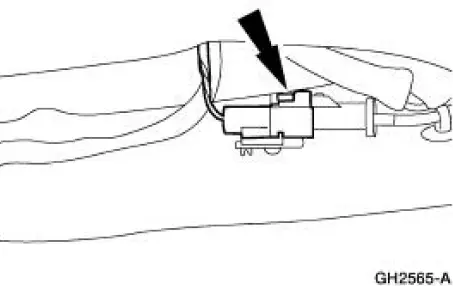
3. Raise and support the vehicle. 4. Remove the rear anti-lock brake sensor harness from the floor pan.
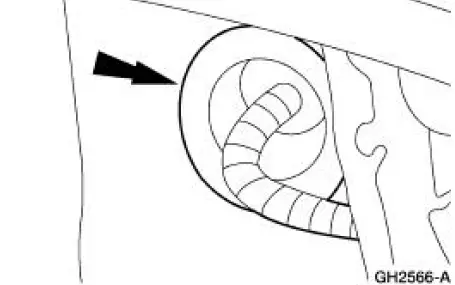
5. Remove the anti-lock brake sensor harness bracket bolt.
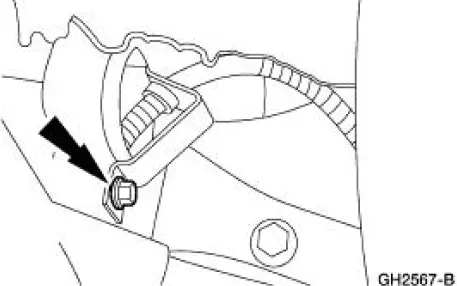
6. NOTE: The sensor may be siezed to the axle. Use Rust Penetrant and Inhibitor F2AZ-19A501- A meeting Ford specification ESR-M99C56-A to loosen the sensor for removal.
Remove the rear anti-lock brake sensor.
1. Remove the rear anti-lock brake sensor bolt.
2. Remove the rear anti-lock brake sensor.
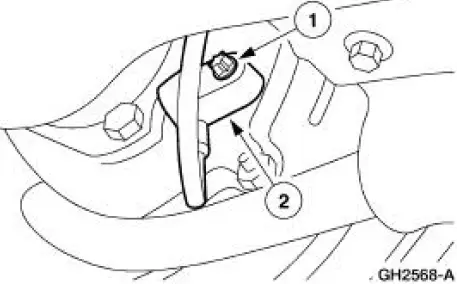
Installation
1. NOTE: Be sure to apply High Temperature Nickel Anti-Sieze Lubricant F6AZ-9L494-AA meeting Ford specification ESE-M124A-A to the sensor body where it will make contact when installed.
To install, reverse the removal procedure.
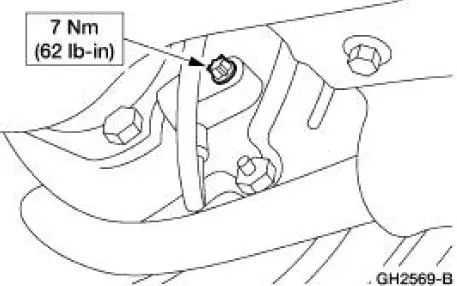
 Switch - Traction Control
Switch - Traction Control
Removal and Installation
1. NOTE: If the vehicle is equipped with an automatic
transmission, position the shift lever in the 1
position before detaching the floor console finish panel.
Lifti ...
Other materials:
Communication Circuit Wiring Repair
Special Tool(s)
Heat Gun
107-R0300 or equivalent
1. Disconnect the battery ground cable. For additional information, refer to
Section.
2. Strip the wires.
3. NOTE: Use rosin core mildly activated (RMA) solder, not acid core
solder.
Solder ...
Pilot Bearing
Special Tool(s)
Puller with Slide Hammer
308-001 (T58L-101-B)
1. Remove the clutch disc and the clutch pressure plate. For additional
information, refer to Disc
and Pressure Plate-3.8L and 4.6L (2V) Engines or Disc and Pressure Plate-4.6L
(4V ...
Removal
1. CAUTION: The vehicle must be on level ground and at curb height.
Mark the rear shock absorbers relative to their protective sleeve.
During installation, raise the suspension to this reference mark before
tightening the
suspension component fasteners.
...
